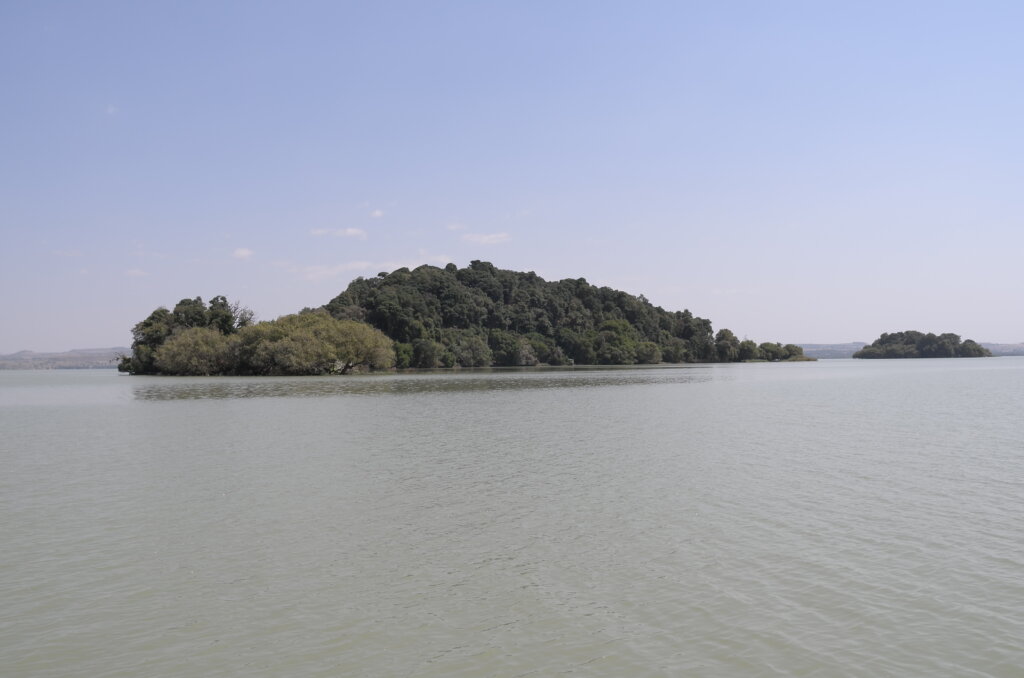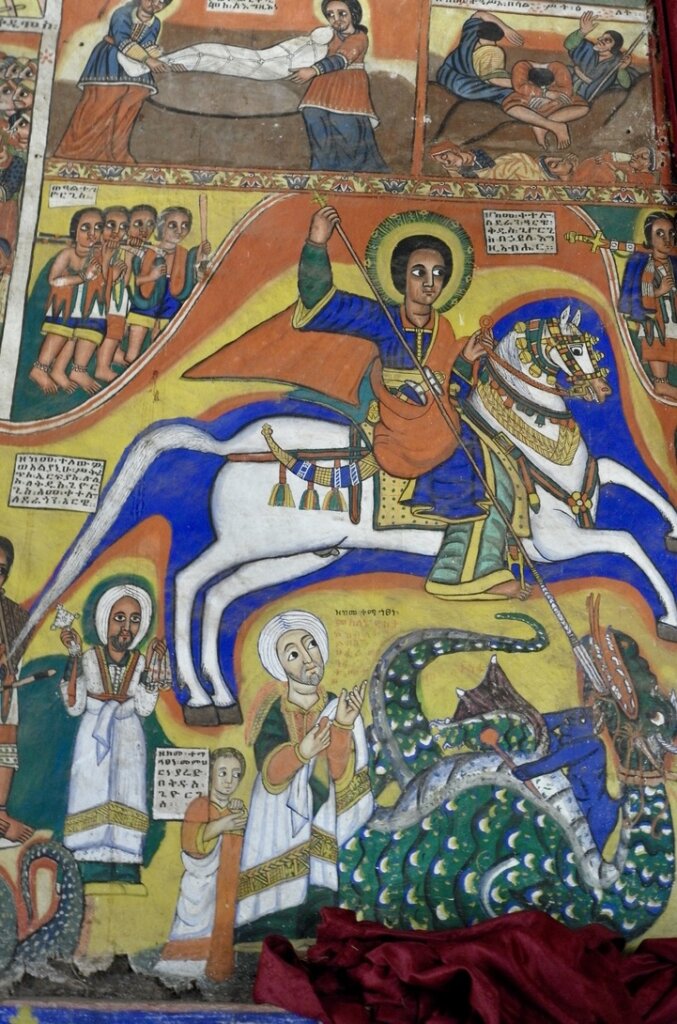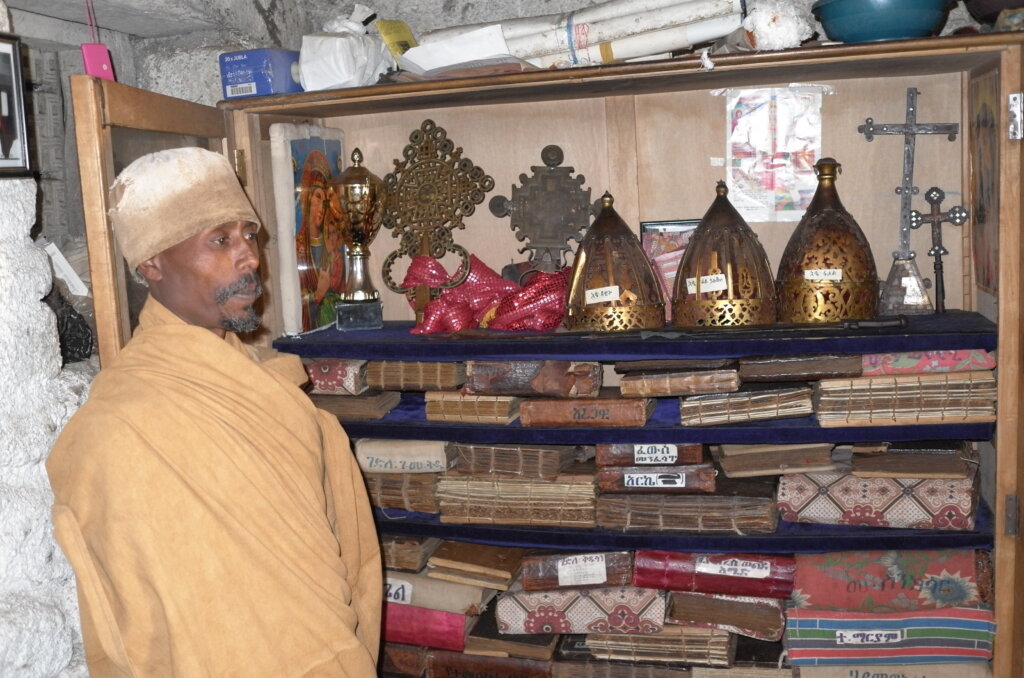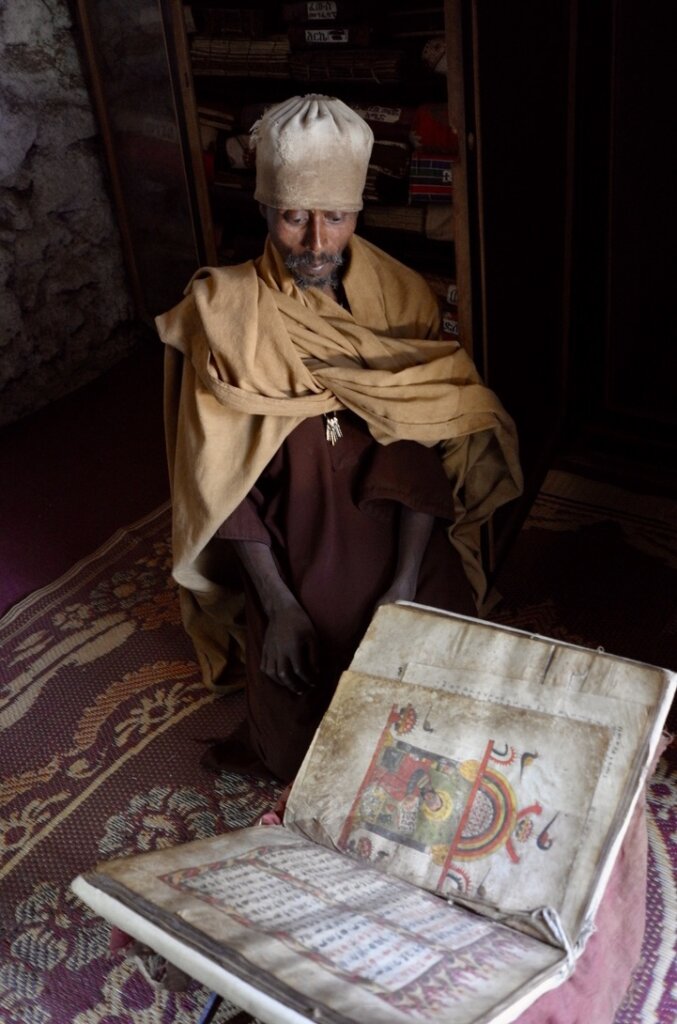Lake Tana, in northern Ethiopia, is a large Rift lake (3500 sqkm) dotted with dozens of islands. There are 20 monasteries located on the shores and islands of the lake, most of them dating back to the 14th century. During the period of warfare with the Muslims from the east in the 16th and 17th centuries, the Ethiopian empire was under constant pressure and many of the country’s most precious treasures were transported to the remote monasteries of Lake Tana and placed there for safekeeping.
They remain there to this day, treasures which would find pride of place in the world’s great museums, stored in decrepit monasteries with a nonchalance which is at once naive and charming.
Those remote monasteries are seldom visited by outsiders. They sit atop the hills of small islands in the middle of the lake in tranquil pastoral settings. Crumbling stone walls, decrepit watch towers long abandoned, old trees with the memory of long dead abbots and monks in their yellow robes shuffling silently between the grey buildings.
Those forgotten monasteries are one of the last places on Earth where monks still copy and illustrate books by hand. We discover libraries of ancient parchment books, the oldest dating to the 9th century. Jewel-studded crowns of emperors, ancient battle-winning swords and the mummified remains of 14 of Ethiopia’s most revered emperors. All of these priceless treasures are casually displayed in poor quality cabinets in the treasure rooms of the monasteries, exposed to the elements and to theft.
I suppose that the Ethiopian Orthodox Church being such a strong living institution, these treasures are seen as artifacts that legitimize each monastery and give them more prestige and influence – not as witnesses of History to be kept in museums and shared with the many.





